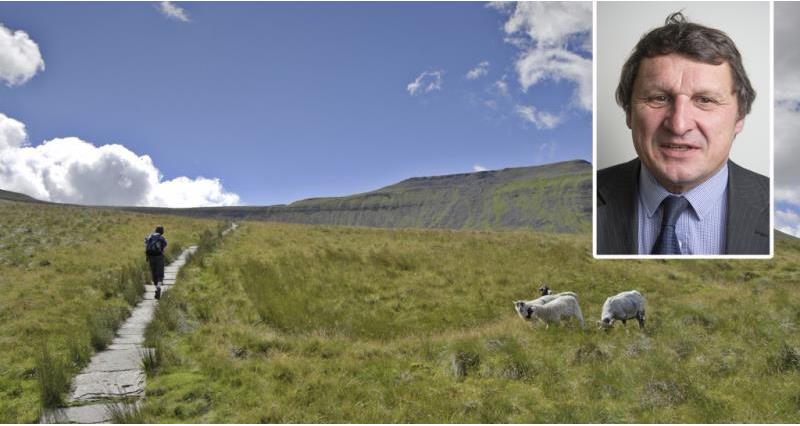He writes:
There has been much discussion in recent weeks about the farmer’s role in looking after the farmed environment. Happily, as seen at last month’s Uplands Alliance meeting at Defra, we’re seen as fundamental to the future of these beautiful living and working landscapes.
The discussion was based around finding synergies and working together post-Brexit, an interesting thought considering some NGOs' actions in recent times. Interestingly the key message to be taken out the day was that the farmer had to be at the centre of future policy, with feedback proving their importance to these areas from all stakeholders.
We provide, maintain and manage the landscape many have grown to know and love, from a time long before any environmental or government scheme was in place. A recognition of the multiple benefits farming provides was also discussed, from water quality, bio-diversity and carbon storage, as well as the huge tourism appeal. All these benefits are provided by a farmed environment; the positives are obvious and we hope other organisations can appreciate the need to work with our industry to provide benefits to all parties.
The active farmer can offer wider benefits while fundamentally providing a safe and secure source of food and breeding livestock to feed a hungry nation. Through future asks we need to remember this as the core of any farming business. Events like the one organised by The Uplands Alliance can help with the recognition of the fundamental importance of farming, underpinning it all.
The primary challenge will be to justify support for a farmed upland environment in the most sustainable and effective way. To enable this to happen needs a lot of discussion around ensuring funding comes down to farmer level. It's vital. It also needs to be done in a simple and easy to administer way, to ensure the uplands areas can thrive, and discussions need to highlight the benefits of early EFA/grant funding schemes.
The ease and simplicity of administration is something which cannot be forgotten and given upland NFU members' current issues with support payments, I’m sure this will very much be at the fore front of all our minds.
Some other thought-provoking questions were addressed on the day. For example, what exactly are family farms? To comply, do you have to have a definition of size and scale of the farming business? Should we be aiming for local or national schemes? Who determines value and who actually pays? These thoughts throw up a vast range of questions, but at this stage the importance of simplicity and reward, and ensuring any benefits reach the actual farmer, is all we ask for.
The day also highlighted the need to involve the shopper/visitor in every part of our work, a credible message which I feel we all should consider. Some question marks were also raised about future policy, with a determination around the room that any future policy should be used to offer a long-term plan for the uplands.
Through all of this uncertainty I see it a huge opportunity to fix and improve current flaws within our system and hope we do not forget the underlying pillars of what supports and holds up the uplands. The cultural and socio-economic value of keeping our hills and uplands as a living and working landscape must be a priority.
The NFU Uplands Forum represented members’ interests at the Uplands Alliance event on September 22. The event was attended by all stakeholders in our upland farmed environment, from agents to NGOs, as well as academics.
